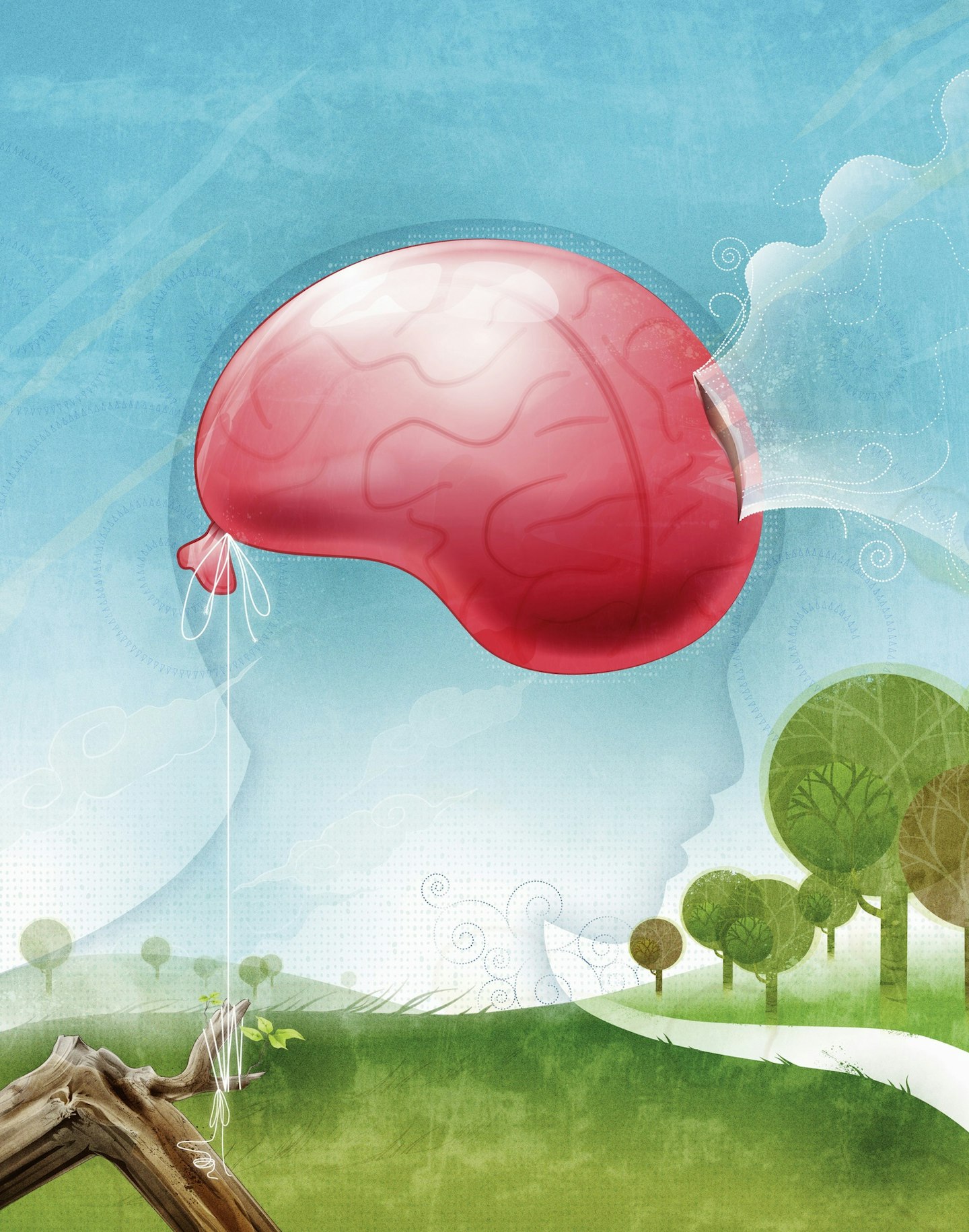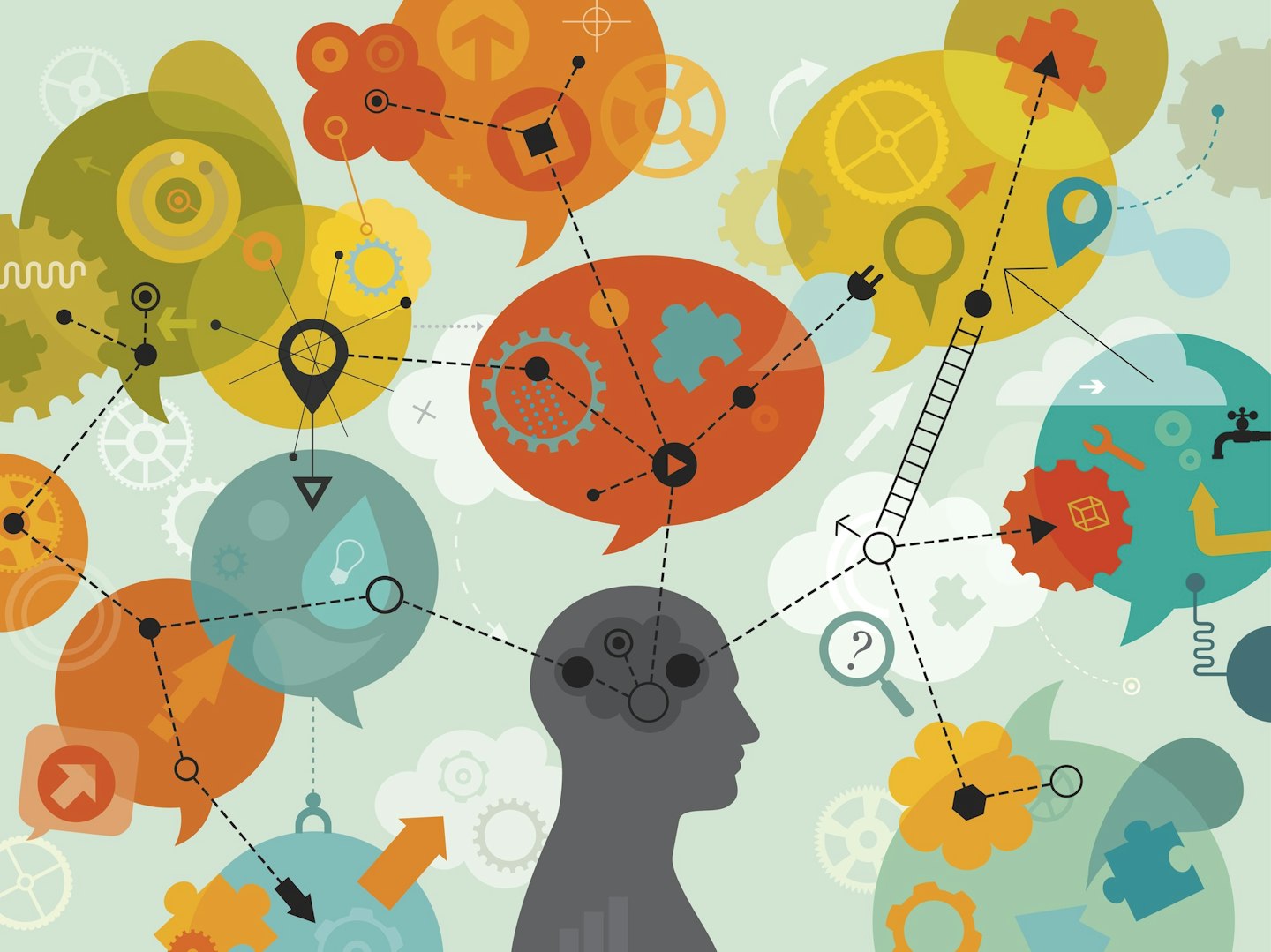Hands up who's walked into a room recently, only to completely forget what you're there for?
Or perhaps you've neatly stowed your mobile phone in the fridge, alongside the margarine and Tropicana, in a moment of random disconnect.
Maybe you re-set your Amazon password a thousand times a week, yet continually struggle to remember what it is.
If any of these experiences ring true for you, you may file them away as increasing evidence of your ditziness and/or absent-mindedness.
But the truth is, forgetting things plays an important evolutionary role; we are geared to do so.
The reasons why forgetfulness works for us are examined from a neuroscience point of view, in a new article on Thrive Global.

For starters, forgetfulness helps us edit the memories that are most useful and productive to us. By forgetting things, our minds can move around and develop - they're not stuck ridgidly to a fixed and growing quota of memories.
"If you didn’t forget, you’d have this sea of interference that would make it hard to figure out which bit of memory helps," says Anthony Wagner, the principal investigator at the Stanford Memory Lab in the States.
Given we have 80 to 90 billion neurons in our brains, that's a huge level of memories that could potentially be built up - if our minds worked that way.
But, instead, we forget things all the time. And in doing so, we're able to form new memories and be mentally flexible.
In order to remember a new computer password when prompted, for example, you have to forget all your old ones. Otherwise, if you stored up recall of all your passwords, the process would become incredibly confusing.

The other reason why forgetfulness is important is that it allows us to generalise and learn from life experiences.
This is because we tend to remember the essence of what has happened to us, without recalling every little detail.
"Memories can be viewed as models of the past," say Toronto-based researchers Blake A. Richards and Paul W. Frankland. They are "simplified representations that capture the essence, but not necessarily the detail, of past events".
That way, when something difficult or unexpected happens to us - when life gets messy - we can better rely on our pruned-back memories to help out and be relevant in the way that we cope.

And if you needed anymore proof that forgetting is important, look to the extremely rare condition of highly superior autobiographical memory (HSAM).
Only around 60 people in the world are thought to have this extraordinary power of recall, whereby they can remember something that happened 20 years ago or more in the same vivid detail as most of us would be able remember something that occurred just yesterday.
People with HSAM backlog extremely precise memories - the good, the bad and the inane - from most days of their lives. So, they can still remember the exact insult someone told them in the playground 25 years ago, for example, or every tiny event that happened when they were at their happiest.
And, if this sounds like a good thing - stop to consider. Because some of those who have HSAM describe their mind as a split-screen; half is in the present, the other half is presenting a constant reel of clear-clut memories.
"We call it forgetting but on the other hand, simple storage of information is stupid, it’s just data hoarding. What’s the point? You need to extract something useful from it, then we call it knowledge or wisdom," memory researcher Craig Stark tells the Guardian.
"Memory is not about looking backwards, that is not why we have it. It’s there so that your past experiences will make you more adaptive in the here and now and in the future."
Read More: 13 Of The Best Spas For The Mind And Body
Read More: Six Easy Habits That Will Make You Happier Every Day, According To Science
